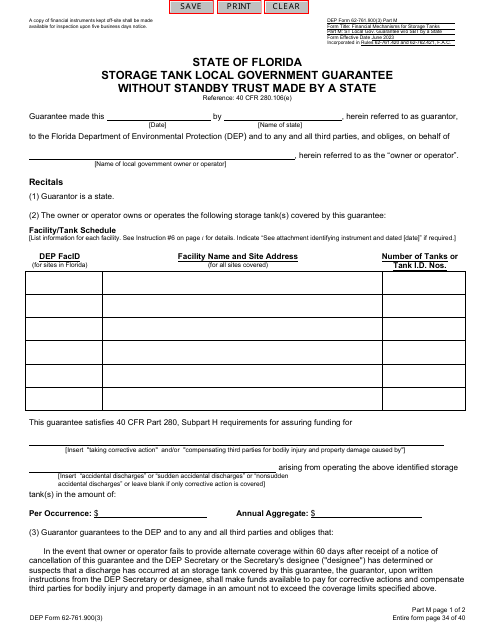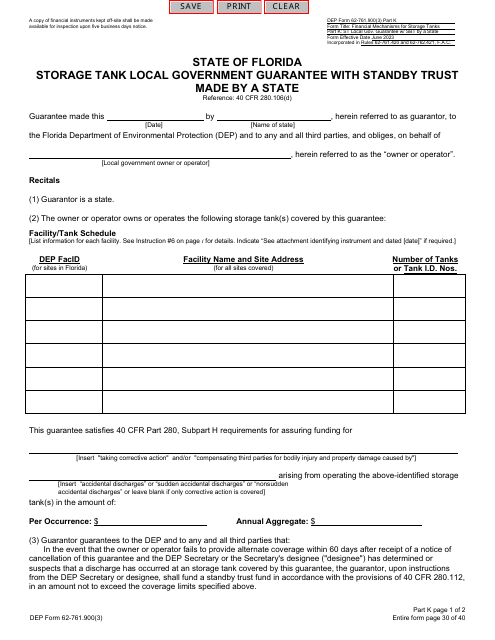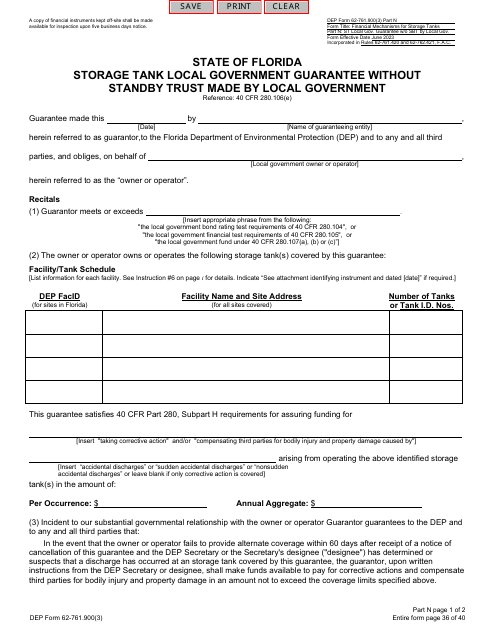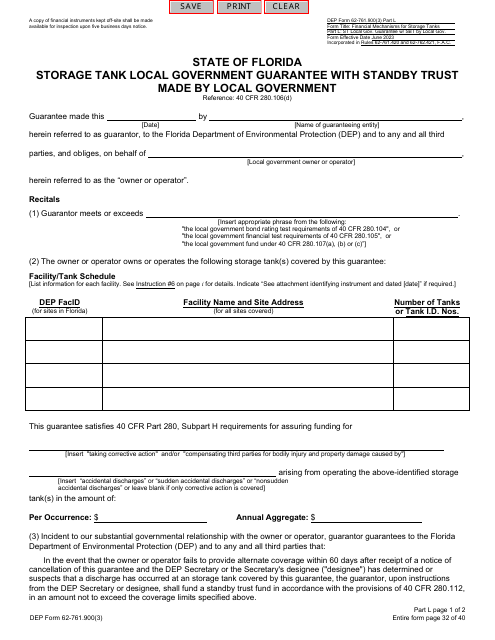Standby Trust Templates
A standby trust, also known as a standby trust agreement, is a legal document that provides a mechanism for ensuring the fulfillment of certain obligations. It is commonly used in situations where a local government or state entity needs to guarantee the compliance or performance related to specific matters. These matters can range from storage tank regulations to environmental protection requirements.
Standby trusts are typically established through a standardized form, such as the DEP Form 62-761.900(3) in Florida. This form allows local governments and state authorities to create an agreement that outlines the conditions and terms of the standby trust.
One of the key purposes of a standby trust is to provide financial security in the event of non-compliance or default. In situations where a local government or state authority is unable to fulfill their obligations, the standby trust can be activated to cover the associated costs or liabilities. This ensures that the affected parties are protected and that the necessary actions are taken to address the situation appropriately.
In addition to covering potential costs, a standby trust can also serve as an incentive for compliance. By requiring local governments or state authorities to establish a standby trust, regulators are able to hold them accountable and ensure that they meet their obligations.
Overall, standby trusts play a vital role in ensuring compliance with regulations and providing a layer of financial protection. They give local governments and state authorities the means to fulfill their commitments and protect the welfare of the communities they serve. Whether it's a storage tank local government guarantee or other environmental compliance matters, standby trusts are an important tool in maintaining safety and integrity.
Documents:
8




